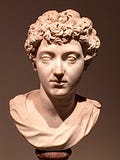Share this discussion

Comment by Massimo Pigliucci on Figs in Winter: New Stoicism and Beyond
Michael, again, I'm not second guessing anything. Stockdale knew exactly what he was doing. It's ri…
31 Comments
© 2024 Massimo Pigliucci
Substack is the home for great culture

Michael, again, I'm not second guessing anything. Stockdale knew exactly what he was doing. It's right there, in his own biography.
Yes, most certainly justice overrides one's duty as a soldier. I would think that to be obvious. Soldiers kill, often for unjust reasons. War may be a sometimes necessary evil, but it is an evil nonetheless. And the one in Vietnam was definitely not necessary. And started on false pretenses. As Stockdale very well knew.
In applying our conceptions of justice and even colonialism to Marcus and the Romans you are adopting precisely the practice of presentism that I argue in the essay is unwarranted and misguided. Obviously you disagree, but I wonder on what grounds. That is, what makes you think it's a good idea to project our values into the distant past and judge people accordingly?
Regarding the Israeli-Palestinian conflict, I am simply not going to comment. It's too row and obviously too partizan at the moment for any reasonable discussion to be head about it, so I'll sidestep it, if you don't mind.
Regarding Socrates: yes he was a soldier, but that's not what he is remembered for. And, again, you are engaging in presentism when you judge him by modern standards. Concerning the Republic, and setting aside that what Plato writes there is significantly more complicated than how you describe it, scholars agree that that was clearly Plato using "Socrates" as a character in his dialogue. The real Socrates was more likely the one described in the early dialogues, as well as by Xenophon. In my opinion Stockdale doesn't hold a candle to that Socrates, but of course opinions vary.